Mushrooms are an excellent replacement for a lot of meat products. They are essential items to include in your diet if you are looking to become vegetarian or have a plant-based diet.
While protein is something that is highlighted in mushrooms, the nutrients, and minerals they provide are essential to your health as well. Mushrooms are also commonly used to prevent or aid in fixing health issues, both physical and mental.
See also: 15 Benefits and Disadvantages of Mango That You Should Know. Also, I encourage you to check out the video below summarizing this article.
Table of Contents
1- Oyster
Oyster Mushrooms look similar in shape to an oyster, hence their name. They provide a long list of health benefits, including, but not limited to:
- Providing fiber
- Beta-glucan
- Folic Acid
- B-vitamins
- Minerals such as copper, iron, and phosphorus
- Vitamin D
Different types of oyster mushrooms will have different amounts of calories, protein, vitamins, and minerals, but they usually stay within a reasonable range.
The most popular type of Oyster mushroom is P. eryngii, or King Oyster Mushrooms. This type of oyster mushroom generally contains about 3g of protein per 100g.
See also: The Best Ten Teas For Weight Loss
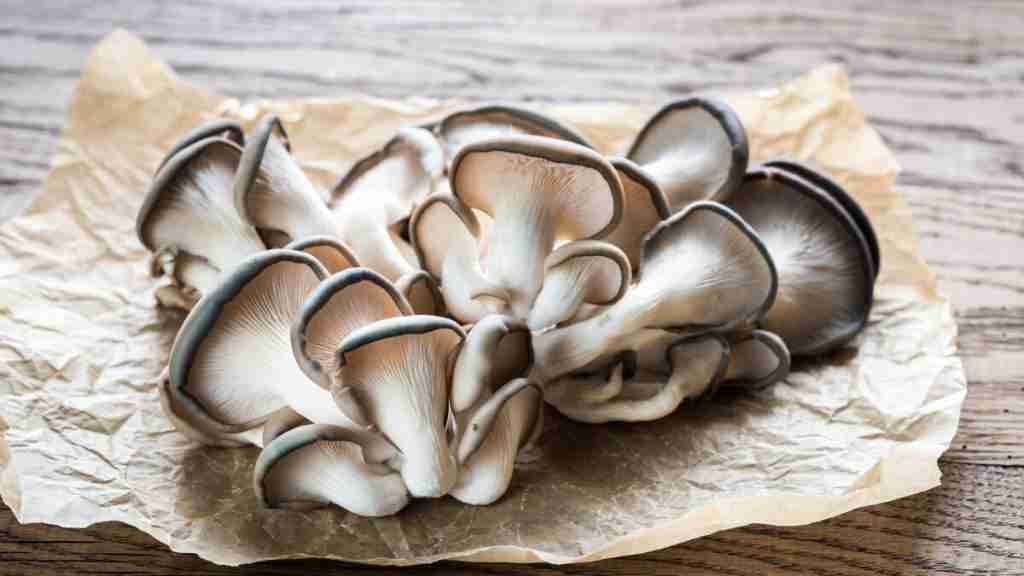
2- Morel
Morel Mushrooms, also known as Morchella, are one of the few mushrooms that can not be grown in a farm-type setting. These mushrooms have to be harvested in the wild. They contain a large amount of vitamins and minerals such as:
- The highest amount of vitamin D out of the edible mushroom family.
- Contain copper, manganese, zinc, and iron, which are essential for body functions.
- Also contain adequate levels of phosphorus and calcium crucial to teeth and bone health.
- Excellent source of B-vitamin complexes.
While every mushroom that you harvest will contain different levels of everything, generally, morel mushrooms contain about 3.1g of protein per 100g.
See also: 18 Veggies That Destroy Stomach Fat – Backed By Science
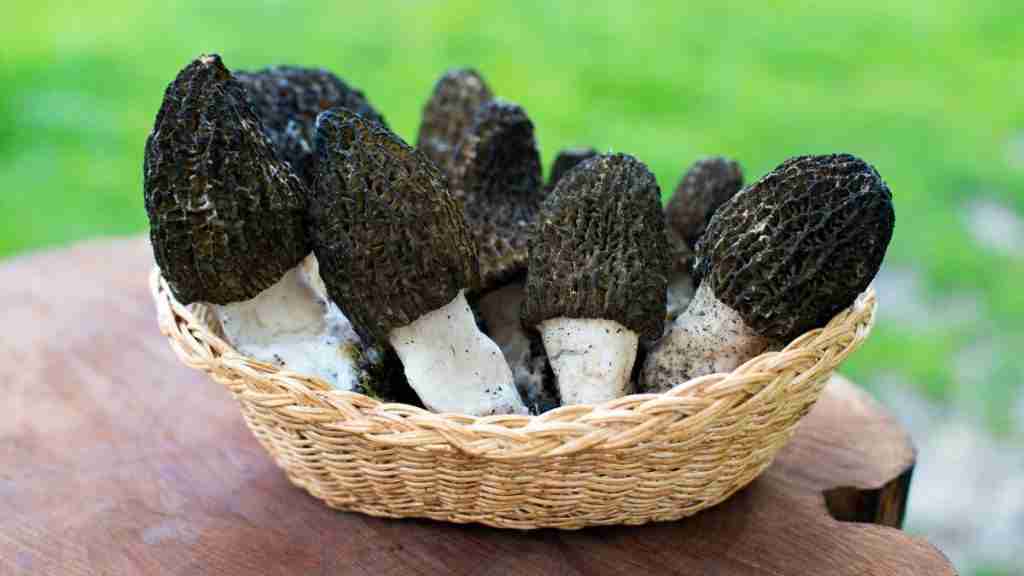
3- White
White mushrooms, also called button mushrooms, are the highest cultivated and consumed mushrooms in the world. White mushrooms are most likely popular due to their full flavor and contain some of the highest amounts of protein and vitamins out of other mushroom types.
White mushrooms contain:
- 3.2g of protein per 100g
- Vitamins C, D, and B as well as niacin, riboflavin, and pantothenic acid
- Contain some of the highest amounts of minerals such as copper, selenium, and potassium.
White mushrooms are a great addition or substitute for those looking to add more protein or lose weight.
See also: Are You Making These 9 Mistakes: Can I Drink Coffee After Taking Apple Cider Vinegar?
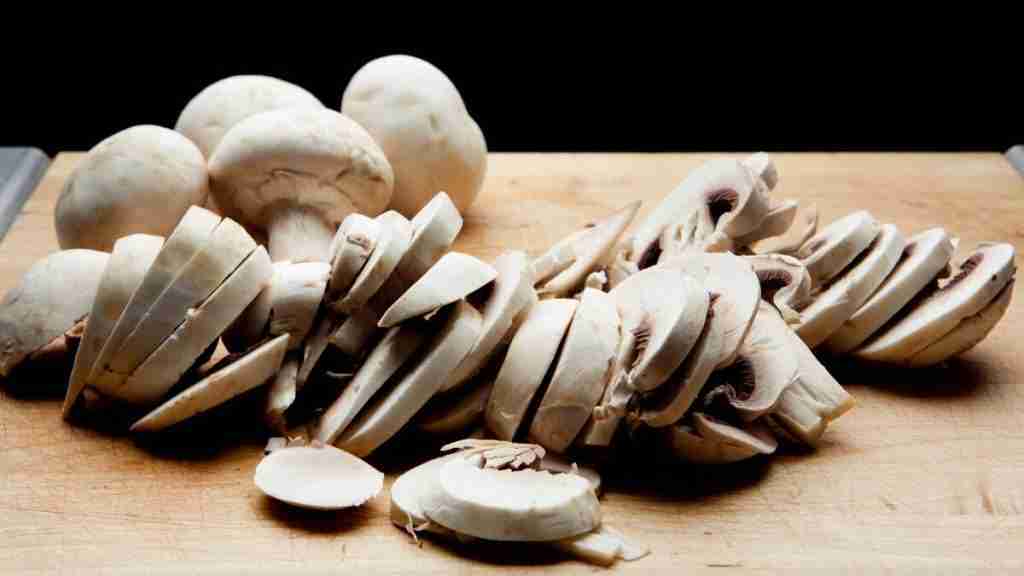
4- Enoki
Enoki Mushrooms may be on the lower end of the spectrum when it comes to adding nutrition; however, in the list of mushrooms, they still make it to one of the top rankings. Enoki mushrooms do, however, contain some of the highest amounts of several other elements such as:
- High antioxidant concentration
- Great amounts of vitamin-B
- Contains high amounts of beta-glucan, which can reduce cholesterol substantially
Enoki Mushrooms are small and need to be eaten in large batches to receive the benefits. Generally, you can expect about 2.6g of protein in 100g of the mushroom.
See also: 24 Disadvantages and Advantages of Apple Cider Vinegar – Backed by Science
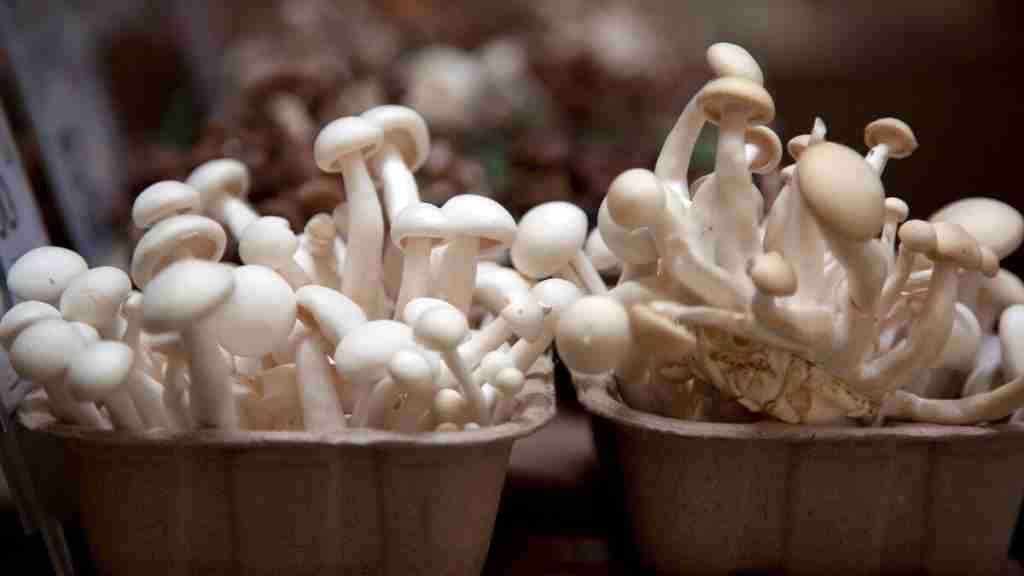
5- Cremini
Cremini Mushrooms are from the same species as portobello and white mushrooms. The difference between these three is their age when harvested. Cremini mushrooms are in more of the adolescent stage when they are harvested and often get called “baby Bellas.”
Cremini mushrooms have some exciting health properties such as:
- Contain bacteria that could help your digestive tract correct any issues
- Can prevent or even fight breast or lung cancer due to some inhibitors that block the overproduction of estrogen that cause tumors
- Can lower blood pressure when pregnant
- Can reduce salt intake due to their savory natural flavor
Cremini mushrooms are on the lower end of the protein amounts for this list but still have higher amounts than most mushrooms. You can regularly get about 2.5g of protein in 100g of cremini mushrooms.
See also: 5 Health Benefits of Eating Mango
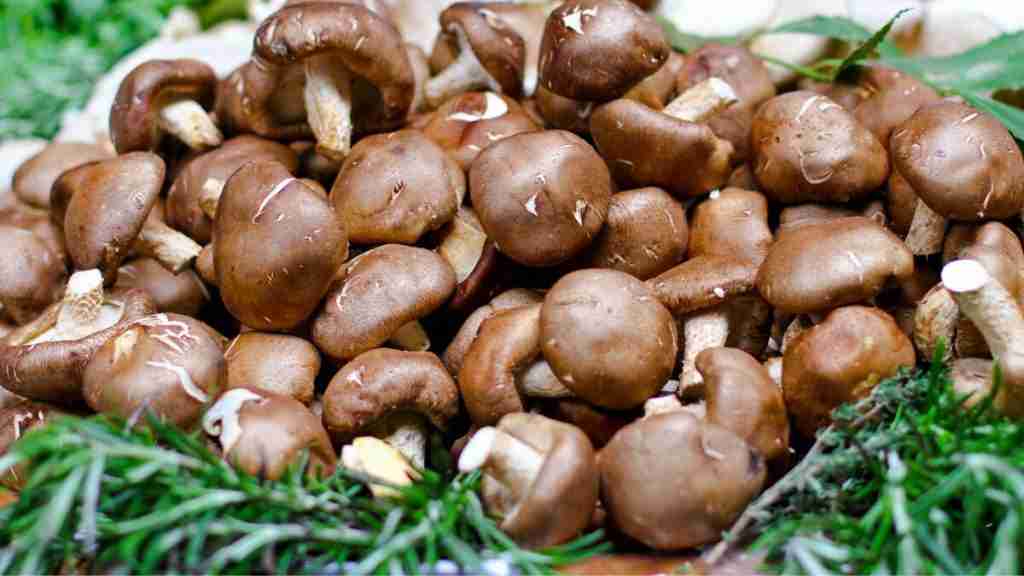
6- Shitake
Shitake mushrooms grow on the side of dead, decaying trees most often. They are one of the most popular types of mushroom to consume and have many health benefits that make them a must for your everyday diet, such as:
- Can help reduce the risk of heart disease by reducing plaque build-up in arteries?
- Reduces plaque build-up on the teeth
- Can reduce the risk of prostate cancer
- Great meat substitutes due to them containing many of the same amino acids as meat
Shitake mushrooms are lower in protein at 2.3g per 100g, but with the other health benefits, they are definitely worth eating.
See also: How to Increase Metabolism: 27 Things You Can Do Right Now (Backed by Science)
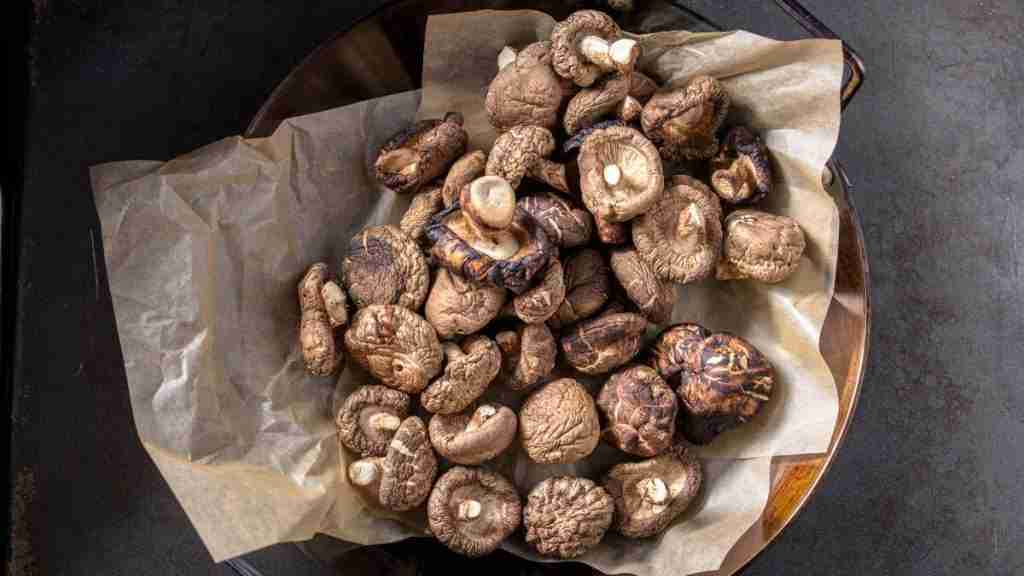
7- Maitake
Maitake mushrooms are considered a type of adaptogen. Adaptogens are things that help the body in fighting or heal any mental or physical difficulty or help regulate processes in the body that are unbalanced.
Maitake mushrooms are great for most diets due to them being:
- Fat-free
- Low-sodium
- Cholesterol-free
- Low-calorie
They are also rich in:
- Amino Acids
- Antioxidants
- Fiber
- Copper
- Potassium
Most people do not use maitake as anything except additions to diets when they are lacking in something or need to fix an ailment. However, maitake mushrooms do provide some protein at 1.9g per 100g.
See also: 20 Simple and Effective Tips On How to Make a Smoothie Thicker
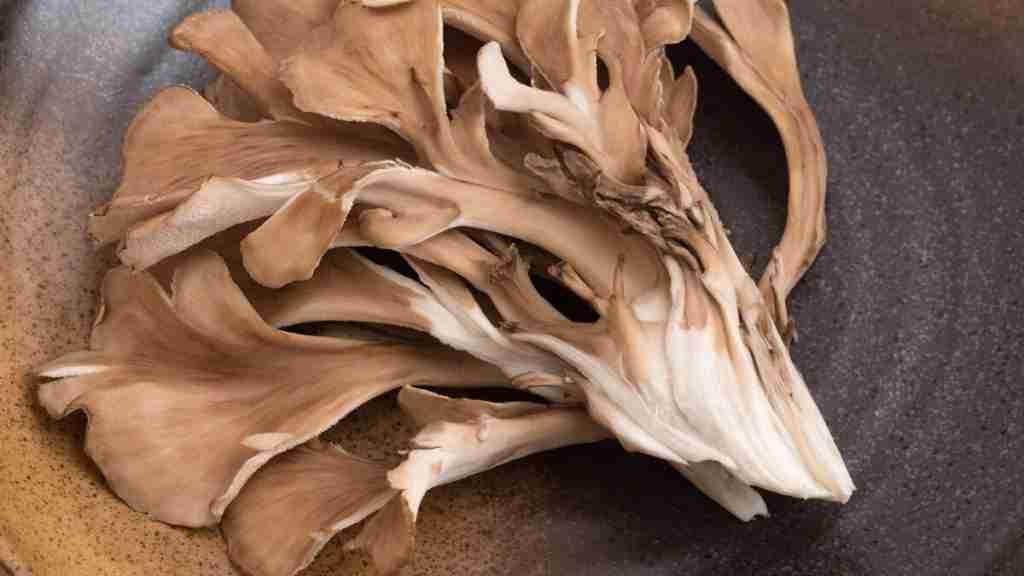
8- Portobello
Portobello mushrooms are from the same family as white or cremini mushrooms, just harvested at the last stage of growth. Given the broad nature of portobellos, they are commonly used as a replacement for many types of meat. They contain quite a few nutrients, such as:
- Copper and selenium
- Vitamin-B and niacin
- Folate
- Amino Acids
- High amounts of protein
Portobello’s protein numbers come in at one of the highest at about 20% of their dried mass. For every 100g of portobello mushrooms, you will receive about 4.5g of protein.
See also: 31 Smoothie Advantages and Disadvantages You Didn’t Know About
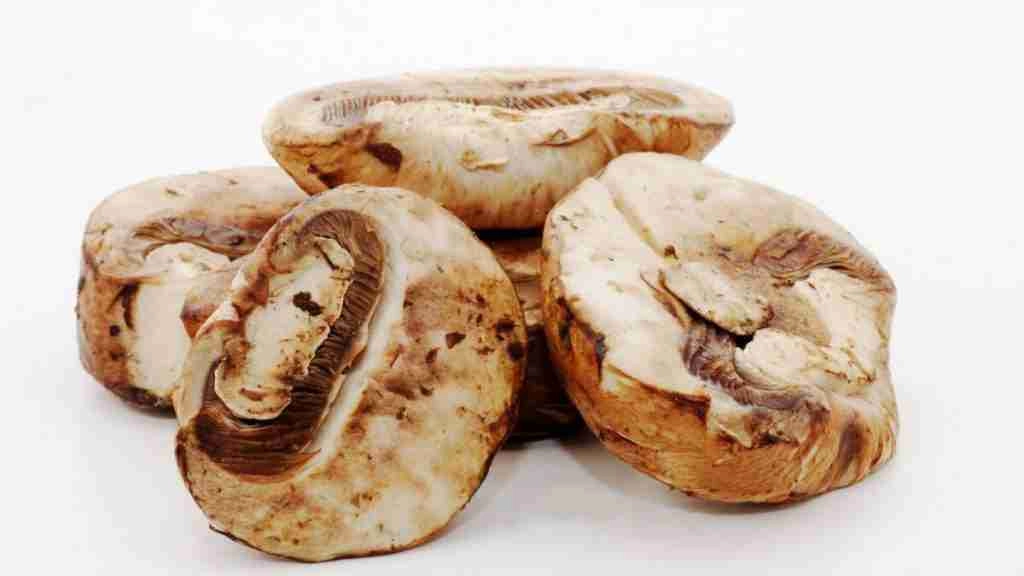
9- Chanterelle
Chanterelle mushrooms have the lowest protein content on this list but still, make it on the top list of mushrooms. While you may need to eat more chanterelle mushrooms to get the same protein count as others, you will be receiving countless other benefits, such as:
- Highest known natural composure of B-vitamins
- Antimicrobial, antifungal, and antibacterial properties
- Contain lanthionine, which is used in the treatment of blood clots
Chanterelle mushrooms generally contain 1.7g of protein for every 100g of mushroom.
See also: Should You Drink Water During Yoga?
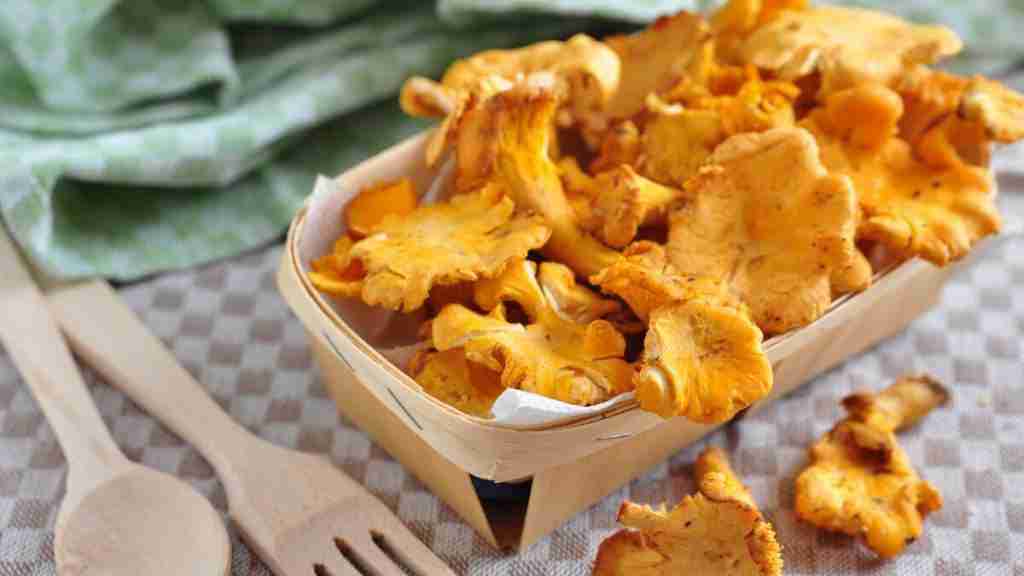
The 9 Mushrooms That Have The Most Protein
The table below contains a list of the 9 mushrooms with the most protein and other benefits they provide.
| Type Of Mushroom | Protein Amount in grams per 100/g | Other Benefits |
| Oyster | 2.9g-5.0g | – Good source of B and D vitamins – Excellent source of minerals required for digestion and daily body function |
| Morel | 3.1g | – High vitamin D and B content – Contains copper, manganese, and zinc |
| White | 3.2g | – Contain some of the highest amounts of minerals and vitamins |
| Enoki | 2.6g | – Contain high amounts of antioxidants – Contain beta-glucan for reducing cholesterol |
| Cremini | 2.6g | – Can help fight lung and breast cancer – Aids in lowering blood pressure in pregnant women |
| Shitake | 2.3g | – Reduces plaque build-up in arteries and teeth – Can help fight or prevent prostate cancer |
| Maitake | 1.9g | – Fat-free – Contains many great minerals, nutrients, and vitamins |
| Portabello | 4.5g | – Amino acids – High in nutrients and minerals |
| Chanterelle | 1.7 | – Can aid in blood clots – Can help fight fungal, micro bacterial, and bacterial infections |
Final Thoughts
There are countless types of mushrooms you can eat raw, cooked, or dried. However, only a few will provide enough protein to keep you full and replace meat in your diet. Protein is essential to some critical functions in our bodies.
If you strive towards maintaining a meat-free lifestyle, mushrooms are a great way to ensure you receive the same nutrients and minerals you would from eating meat.
Source:
- Oyster mushroom nutrition facts
- Oyster Mushroom Nutrition Facts and Health Benefits
- Morel mushroom nutrition facts
- Morel Mushrooms
- Mushrooms, raw, morel
- White Mushrooms: Nutrition, Benefits, and Uses
- Cooked White Button Mushrooms
- Mushrooms, white, raw
- Enoki Mushroom Nutrition Information
- Enoki mushroom (enokitake) nutrition facts
- Mushrooms, enoki, raw
- Mushrooms, crimini
- Health Benefits of Crimini Mushrooms
- Mushrooms, brown, Italian, or Crimini, raw
- Cremini Mushrooms
- Why Shiitake Mushrooms Are Good For You
- Shiitake Mushroom Nutrition Facts and Health Benefits
- Mushrooms, shiitake, cooked, without salt
- The Health Benefits of Maitake
- Mushrooms, Maitake, Raw
- Everything You Should Know About Maitake Mushroom
- Mushrooms, portabella, grilled [Portobello]
- RANKING TYPES OF MUSHROOMS BY HOW HEALTHY THEY ARE


